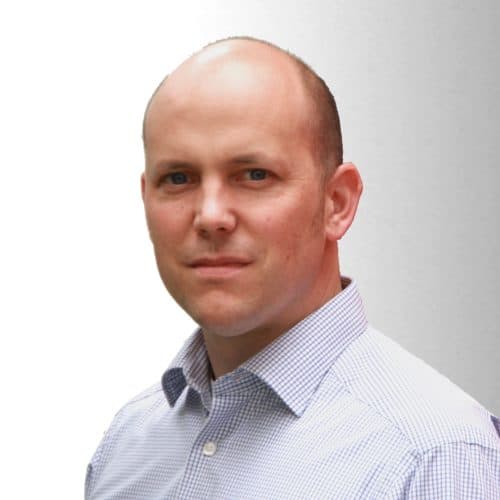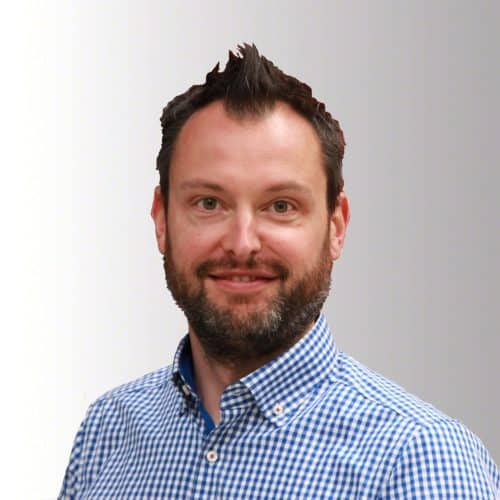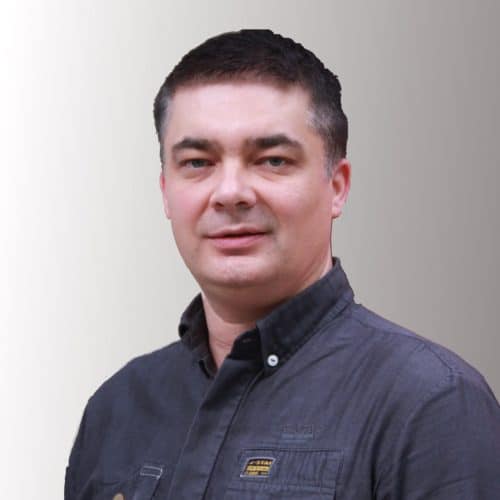

Head of Material and Failure Analysis
+41 52 262 51 40

CTO & Head of Industrial Computed Tomography & Head of Quality Management
+41 62 889 69 66

Head of Mechanical-Technical Testing of Materials
+41 52 262 51 79
Qualitech Services in Medical Technology
Qualitech, as an accredited testing centre, has many years of experience in the field of medical technology. Thanks to our broad range of services, we are the right partner when it comes to meeting the high quality standards of your products. Our customers in the medical sector benefit from the wide range of different test methods and a team of experts who provide specialist advice.
Accredited services – everything from a single source
Non-destructive testing (NDT)
Our employees are qualified and certified in all procedures up to level 3 according to EN 473 or EN ISO 9712, EN 4179 and SNT-TC-1A. Qualitech offers all NDT’s current processes and we have the appropriate facilities to test components and parts in various dimensions, even in large quantities.
Industrial Computed Tomography
In the development of products and in the quality assurance process, industrial computed tomography provides fast and precise evaluations of the measurement results. Zero error tolerance is particularly important in medical technology, as the devices and products are used in hospitals. The dimensions of this modern device allow products with large dimensions up to a height of 2 m and a maximum weight of approx. 350 kg to be analyzed and allow precise measurements even of complicated geometries and entire components. A generated 3D volume model provides comprehensive data and visualizes the results:
- target-performance comparisons
- Wall thickness
- Porosities
- Metrology
- Other defects
Destructive test methods
A large number of test methods are available for testing the material properties and the dynamic strength of components and parts. Under various temperature conditions we test the strength of the material using tensile and impact tests and in our laboratories the structure of the material is analysed metallographically for structure, grain size and distribution. Further important information is provided by hardness measurement and hardness gradients in layers and through surface-treated areas.
Damage may occur
Whether for medical products, devices or tools: In the unlikely event of a claim, we support our customers with our damage and material analysis services. Damage cases are often caused by design or manufacturing faults or unexpected operating conditions (start-up, standstill phases, etc.). Due to the complex interaction of chemical, mechanical and thermal influences, an assessment of the damage process is often only possible through an in-depth damage analysis. Our team of 20 experienced specialists from various fields helps you to avoid damage by getting to the bottom of the cause of material problems and damage events. Depending on the type and significance of the damage, an adapted investigation program is usually defined together with the customer.
Checking technical cleanliness to prevent consequential damage
Qualitech has an accredited testing laboratory according to DIN EN ISO/IEC 17025 and offers services for the technical cleanliness of medical components and parts of various sizes. Residues such as residual particles and liquids that often occur inside the parts are analyzed by FTIR spectroscopy and scanning electron microscopy with energy dispersive X-ray analysis (EDX). The inspection of technical cleanliness is based on the VDA regulations vol. 19/19.1 and ISO 16232, serves to prevent consequential damage and is frequently used in incoming and outgoing inspection as well as in the monitoring of manufacturing processes.
